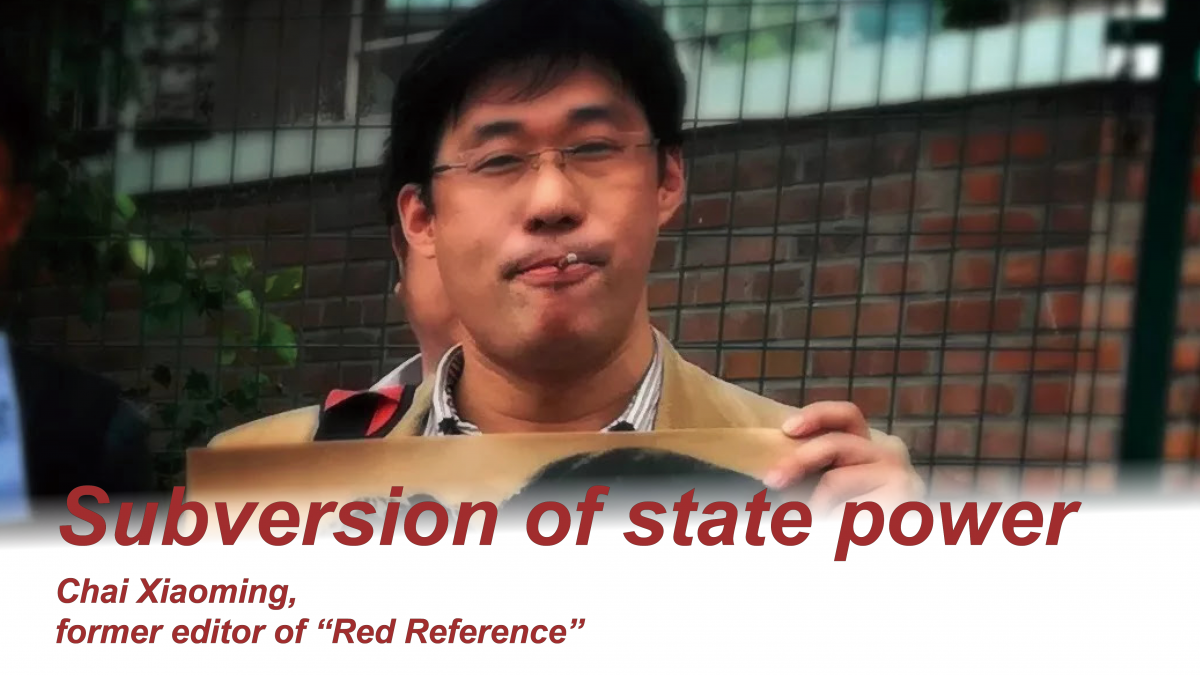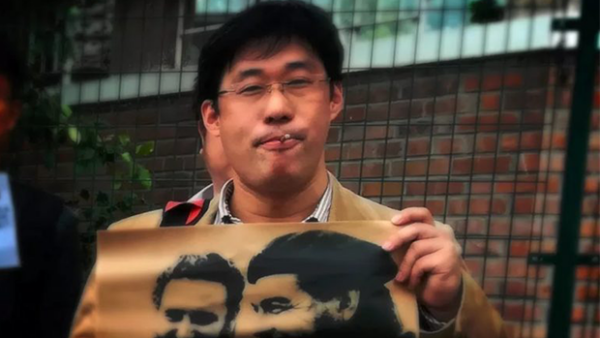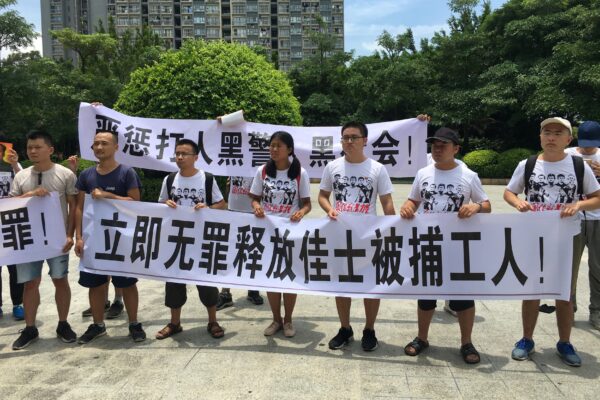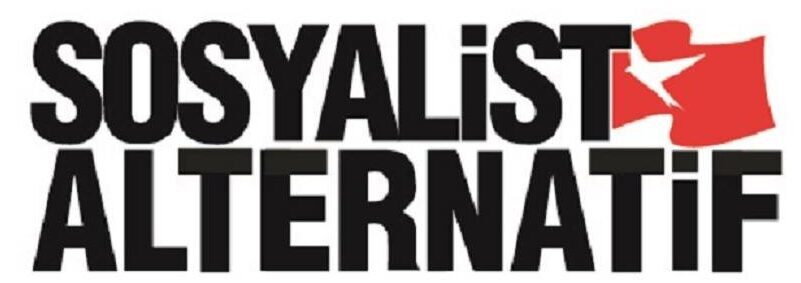
Drop the charges against Chai Xiaoming
chinaworker.info reporters
ISA in China
On 14 August, left activist Chai Xiaoming was tried secretly by the Intermediate Court in the eastern city of Nanjing on the charge of “inciting subversion of state power”. The verdict and sentence of the court have not been made public but the Nanjing Public Prosecutor’s Office submitted a proposal of 3 to 5 years in prison. It is understood that Chai’s lawyers signed a confidentiality agreement with the authorities to ensure information about his case is not leaked.
This case against Chai is a monstrous injustice and is symptomatic of a wider crackdown on Maoist and Trotskyist youth by the Chinese dictatorship (CCP). In October, veteran Maoist Meng Xianda, an editor of the website People’s Voice (人民之声), was detained for questioning and subsequently released. While the cases are not directly connected, Meng like Chai had been a vocal supporter of the Jasic workers’ struggle in Shenzhen in 2018.
Chai Xiaoming
Chai Xiaoming is a self-professed Trotskyist. For a period around a decade ago he often took part in discussions with the CWI (as ISA was called until 2020) and chinaworker.info (中国劳工论坛) although he subsequently broke all contact citing political disagreements. At the time of his arrest in 2019, Chai was an editor for the left “Maoist” website, Red Reference (红色参考).
Most expensive police state
Secret trials in China mean that a defendant’s family, friends and media are excluded. In many cases the defendant is appointed a lawyer rather than choosing their own. A secret trial is ordered when the dictatorship ordains that offences committed involve “state secrets”.
China’s justice system, with courts strictly controlled by the CCP, has a conviction rate of over 99 percent. Court statistics from 2006 to 2016 show that less than 0.2 percent of defendants were acquitted. In other words, going to court almost always assures a guilty verdict. Furthermore most trials rely heavily on confessions, which especially in political cases are often obtained under torture or duress. This can include threats to punish family members, friends or associates if the defendant doesn’t “cooperate” with the authorities. All the above is routine in the CCP-controlled judicial system.
As China has developed into the world’s second most powerful capitalist economy it has become more repressive and dictatorial, assembling the world’s most expensive police state. The government’s budget for internal security (“stability maintenance”) is bigger than its military budget. In 2019, the last available figure, 1.39 trillion yuan (210 billion US dollars) was allocated to internal security, a sum not so far below the healthcare budget of 1.64 trillion yuan (248 billion US dollars).
No details of Chai Xiaoming’s case have been made public, but his period of detention by state security officials began in March 2019, seventeen months before the case went to court. His arrest was formalised in September 2019, indicating a six-month period before the case against him became official. This also fits the pattern for the CCP’s persecution of political dissidents, with long periods of detention prior to trial during which confessions are extracted and in many cases victims are coerced into “cooperating” to avoid a harsher sentence.
Jasic Struggle
Chai’s case is linked to the historic Jasic struggle, when leftist youth and activists from across China campaigned for trade union rights for a group of workers at a Shenzhen machine factory. This struggle was viciously suppressed by the Chinese dictatorship, revealing it’s thoroughly anti-working class character.
Jasic bosses refused to countenance the formation of a trade union at the factory (independent trade unions are illegal in China). They sacked and used hired thugs to beat up the workers’ main spokespersons. The political realities of China’s authoritarian capitalist system are clearly shown by the stark contrast between how workers and capitalists are treated. Jia Lei, the owner of Jasic Technology, and the company’s personnel manager Guo Liqun, are both “delegates” to Shenzhen’s People’s Committee, nominally the city’s “parliament” which is selected by the CCP.
More than 80 youth and workers have been arrested or disappeared in the police crackdown that followed the Jasic workers’ struggle. Red Reference was one of several left websites that helped to spread publicity about the case, something that enraged the Chinese regime.
Shenzhen 2018: Protest by Jasic Support Group
By the end of 2018 the CCP authorities had launched a nationwide crackdown on university campuses, closing down many ‘Marxist Societies’ due to the alleged role these played in channelling support for the Jasic struggle. Prominent leaders among the students were forced to appear in filmed “confessions” after months of police detention. It was also at around this time that Chai was arrested.
Chai Xiaoming’s only crime is to stand up for workers’ rights and protest the brutal repression of workers and fellow socialists in China. The increasingly draconian measures of the Xi Jinping’s regime against leftist youth and older activists shows that despite its attempts to project strength and stability, it dreads the growth in support for socialist ideas. For the new generation of Chinese left and socialist youth, Chai’s persecution only gives more reasons to organise and fight against capitalism and dictatorship.
6 NOVEMBER 2020


